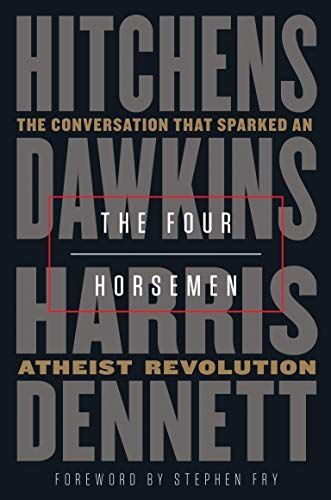
The Four Horsemen The Discussion that Sparked an Atheist Revolution Foreword by Stephen Fry
Is it ever possible to win a war of ideas? Is spirituality the preserve of the religious? Are there any truths you would rather not know? Would you want to see the end of faith? These are all questions that the ‘four horsemen’ of New Atheism, four big thinkers of the twenty-first century, discussed after meeting in person only once. Their electrifying examination of ideas on this remarkable occasion was intense and wide-ranging. Everything that was said as they agreed and disagreed with one another, interrogated ideas and exchanged insights – about religion and atheism, science and sense – speaks with urgency to our present age. The dialogue was recorded, and is now transcribed and presented here with new introductions from the surviving three horsemen. With a sparkling introduction from Stephen Fry, it makes essential reading for all their admirers and for anyone interested in exploring the tensions between faith and reason. Don't miss OUTGROWING GOD by Richard Dawkins, out now . . .
Reviews
Sophie Shrimpton@sinta
Blake Hord@blakehord
Christopher Wheeler@woolgatherist
Ashley Morin@ashmm
Sean Michael McGraw@seanmichaelmcgraw
Savas Yazici@savas
Caitlin Snyder@caitlinrose
Olivera Filipas@olivera
Chris G@encima
Cristian Rus@cristianrus4